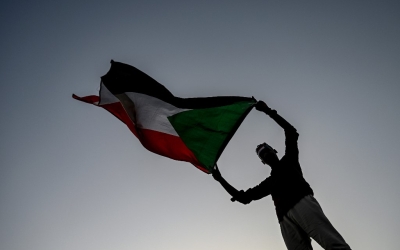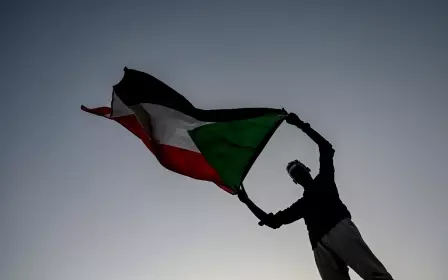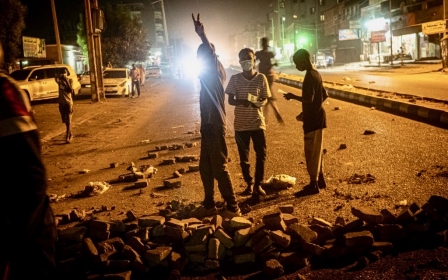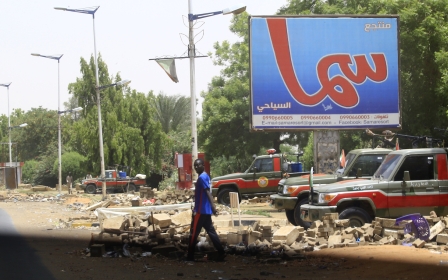Sudan court orders end to internet blackout, lawyer says
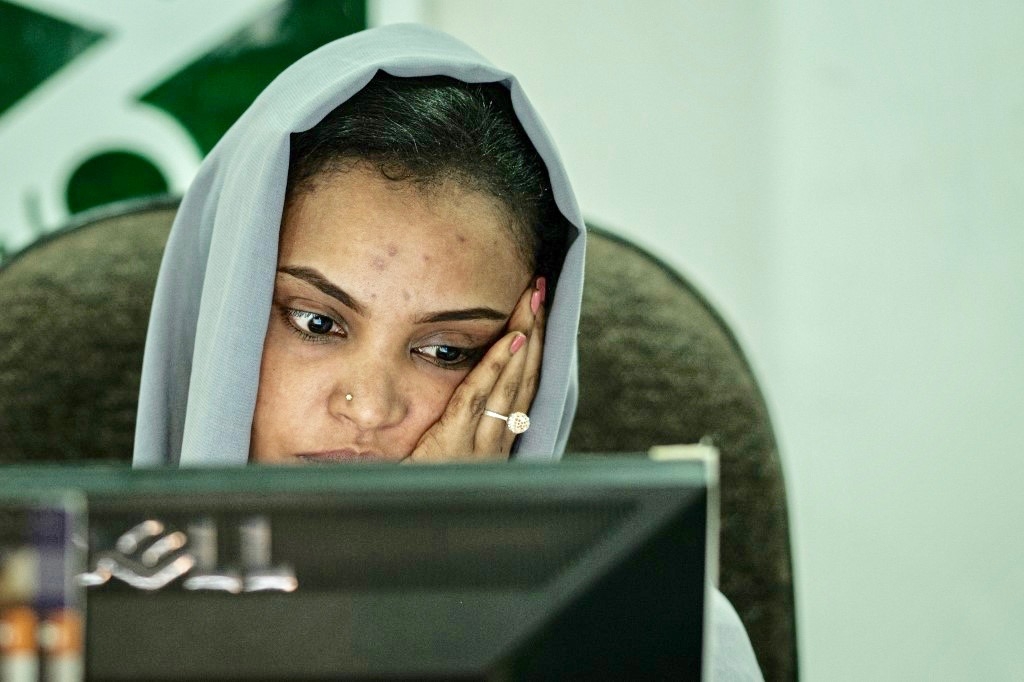
A Sudanese court on Sunday ordered telecoms operator Zain Sudan to restore internet services, a lawyer said, after they were severed almost three weeks ago when security forces dispersed protesters camping in central Khartoum.
Sudan's military rulers ordered the internet blackout as a security measure, but it is harming the economy and humanitarian operations in the African nation of 40 million. The protesters are demanding the military hand power to a civilian authority.
Crowds of protesters were violently dispersed on 3 June by men in military fatigues, who stormed a weeks-long protest camp outside the army headquarters in Khartoum, AFP said.
Abdel-Adheem Hassan, a lawyer who filed his own case against Zain Sudan over the blackout, told Reuters that the Khartoum District Court had ordered Zain to "immediately restore internet services to the country".
Sudanese courts do not confirm nor deny their rulings to the media.
New MEE newsletter: Jerusalem Dispatch
Sign up to get the latest insights and analysis on Israel-Palestine, alongside Turkey Unpacked and other MEE newsletters
Sudanese officials could not be reached for comment and it was unclear what impact Sunday's court order might have, Reuters reported. Yasser al-Atta, a member of the military council, said the council had not yet been notified of the ruling.
"I had filed the case 10 days ago and Judge Awatef Abdellatiff ordered the telecommunications department to resume the internet services immediately," Hassan told AFP. Authorities can appeal the decision.
For the generals the internet and social media are a threat.
"Regarding social media, we see during this period that it represents a threat for the security of the country and we will not allow that," military council spokesman General Shamseddine Kabbashi said earlier this month.
The internet blockade was an attempt to quell new protests against the generals, who have so far resisted handing power to a civilian administration as demanded by demonstrators, protest leaders say.
Tens of thousands of protesters were mobilised through online social media apps during the months-long campaign against the now-ousted leader Omar al-Bashir.
Protest leaders have resorted to neighbourhood campaigns to keep their movement alive, with activists mobilising supporters in night-time gatherings, witnesses said.
Protesters have been demanding that authorities restore internet services as one of their conditions for returning to talks on forming a transitional administration comprising both civilians and military officers.
General Salah Abdel-Khaleq, a member of Sudan's Transitional Military Council, told BBC Arabic in an interview this month that internet services would be restored once those talks resume.
The talks were suspended after security forces stormed the protest camp outside the Defence Ministry in central Khartoum on 3 June. Protesters put the number of dead from that raid and ensuing violence at 128, and the health ministry at 61.
Middle East Eye delivers independent and unrivalled coverage and analysis of the Middle East, North Africa and beyond. To learn more about republishing this content and the associated fees, please fill out this form. More about MEE can be found here.


